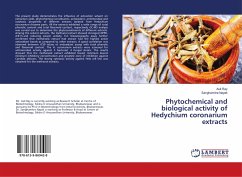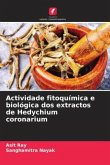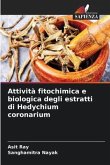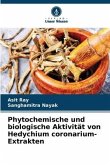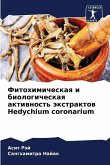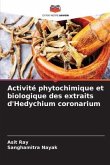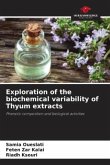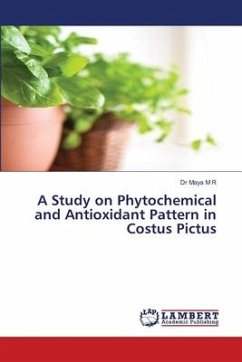The present study demonstrates the influence of extraction solvent on extraction yield, phytochemical constituents, antioxidant, antimicrobial and cytotoxic properties of di erent extracts isolated from Hedychium coronarium rhizome parts. All the extracts exhibited a wide range of total phenolic content and total flavonoid content, respectively. GC-MS analysis was carried out to determine the phytoconstituents of different extracts. Among the solvent extracts, the methanol extract showed strongest DPPH, ABTS and reducing power activity. TLC bioautography assay further confirmed that methanolic extract had extract had the highest active antioxidant bands as compared to other extracts. A good correlation was observed between IC50 values of antioxidant assays with total phenolic and flavonoid content. The H. coronarium extracts were screened for antimicrobial activity against 5 bacterial, 4 fungal strains. The results showed that the methanolic extract exhibited lowest minimum lowest minimum inhibitory concentration and greatest zone of inhibition against Candida albicans. The strong cytotoxic activity against Hela cell line was obtained for the methanol extracts.
Bitte wählen Sie Ihr Anliegen aus.
Rechnungen
Retourenschein anfordern
Bestellstatus
Storno

